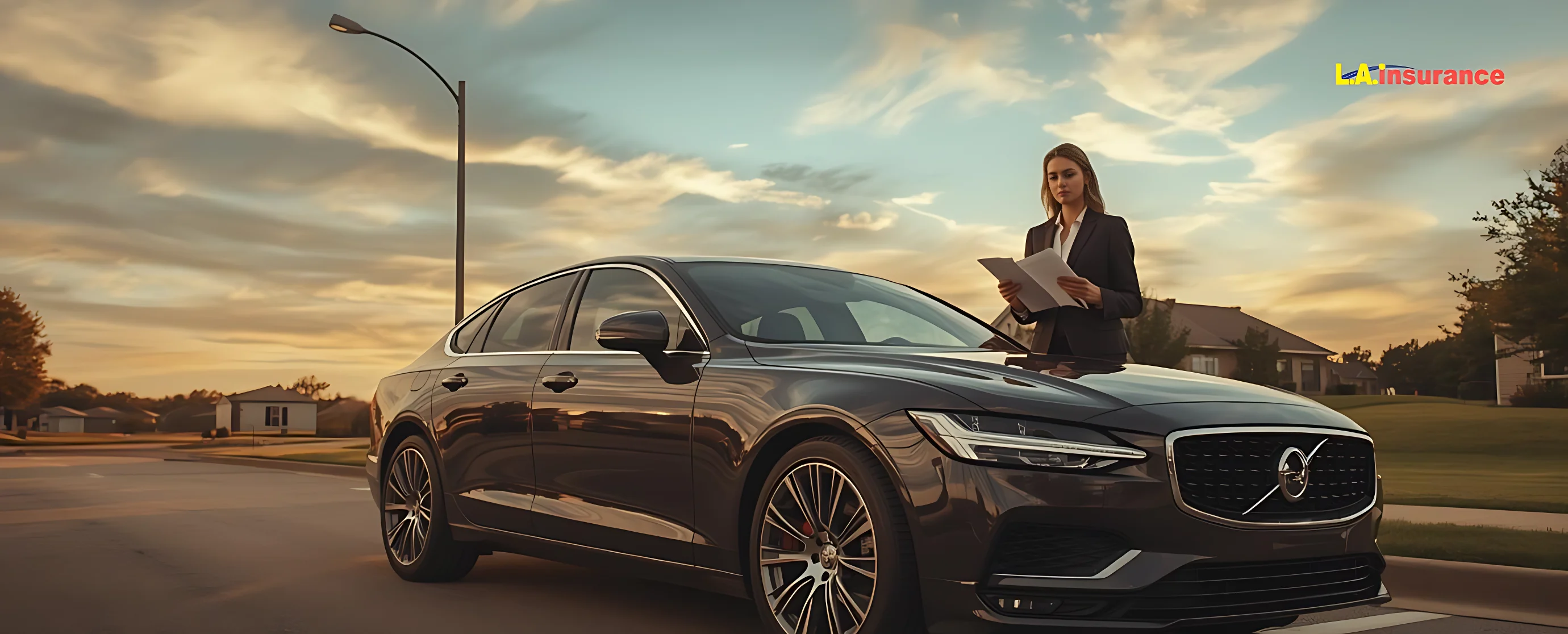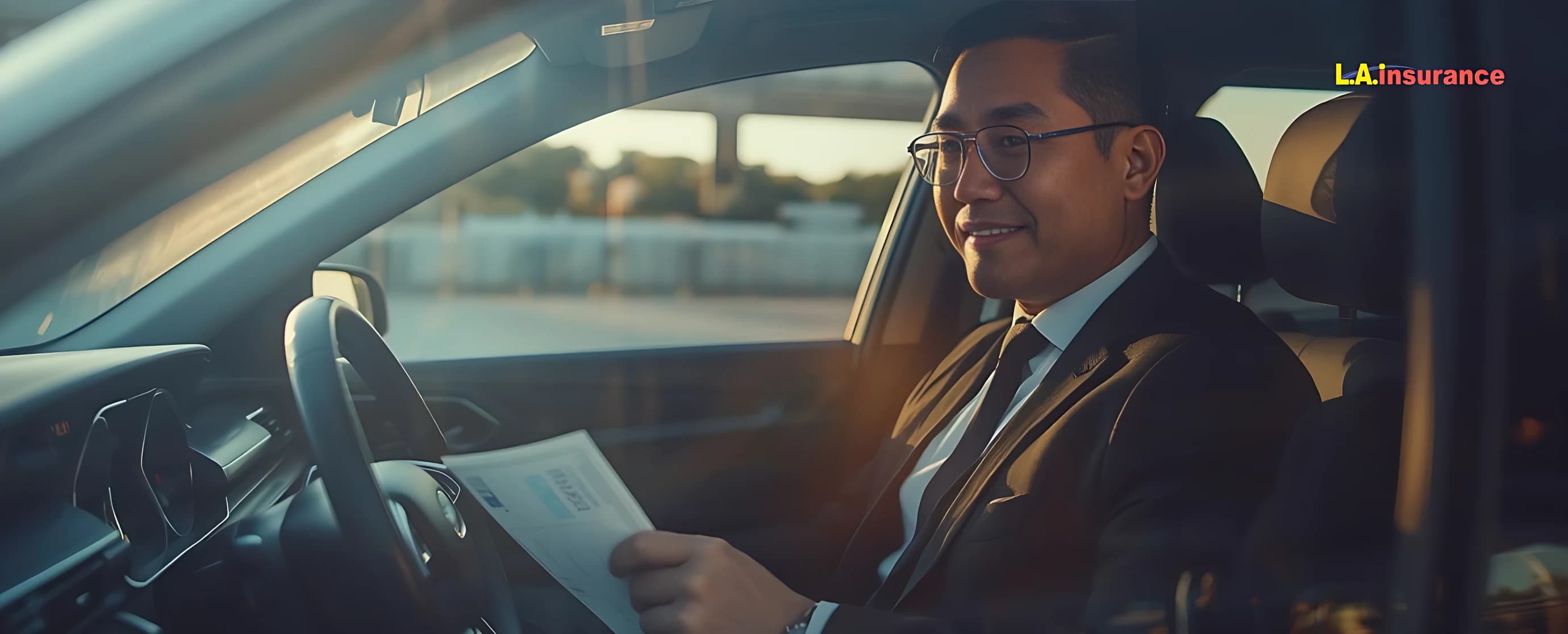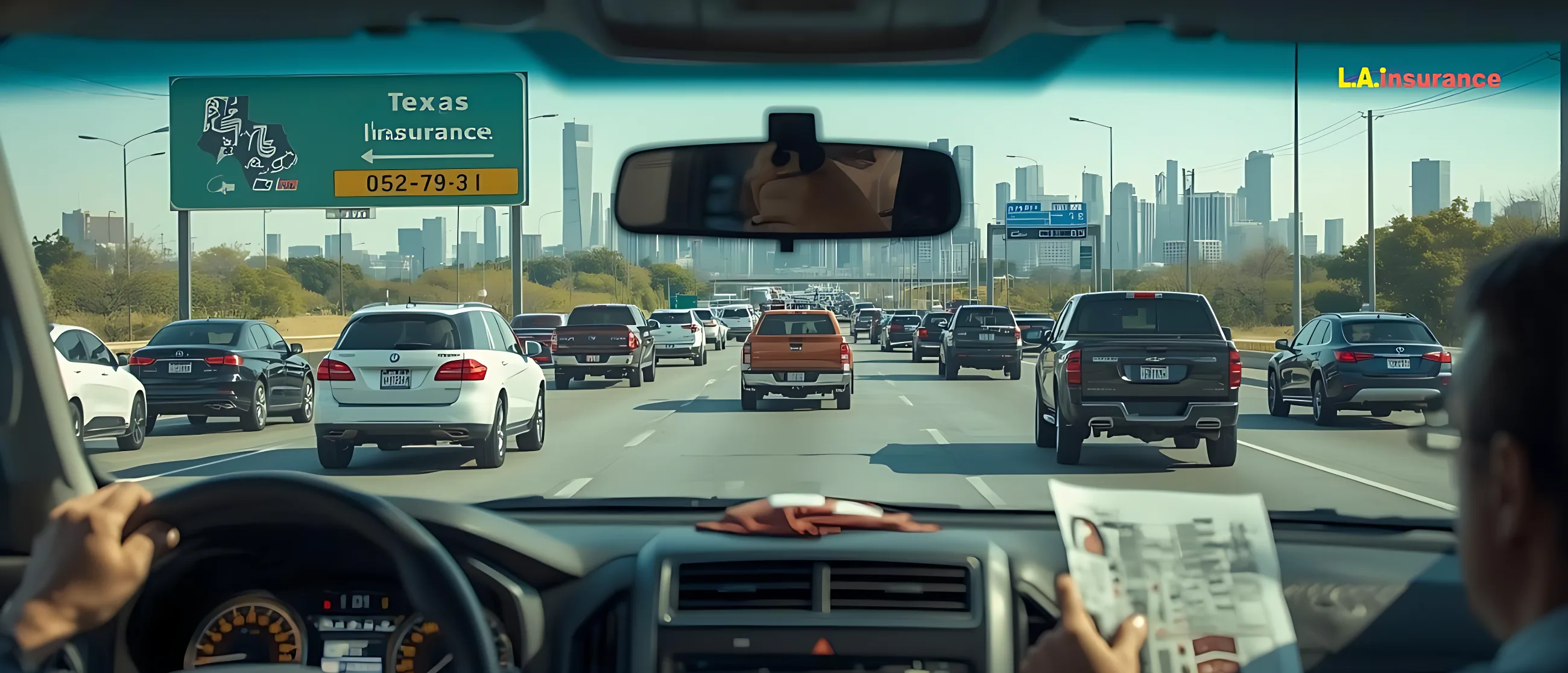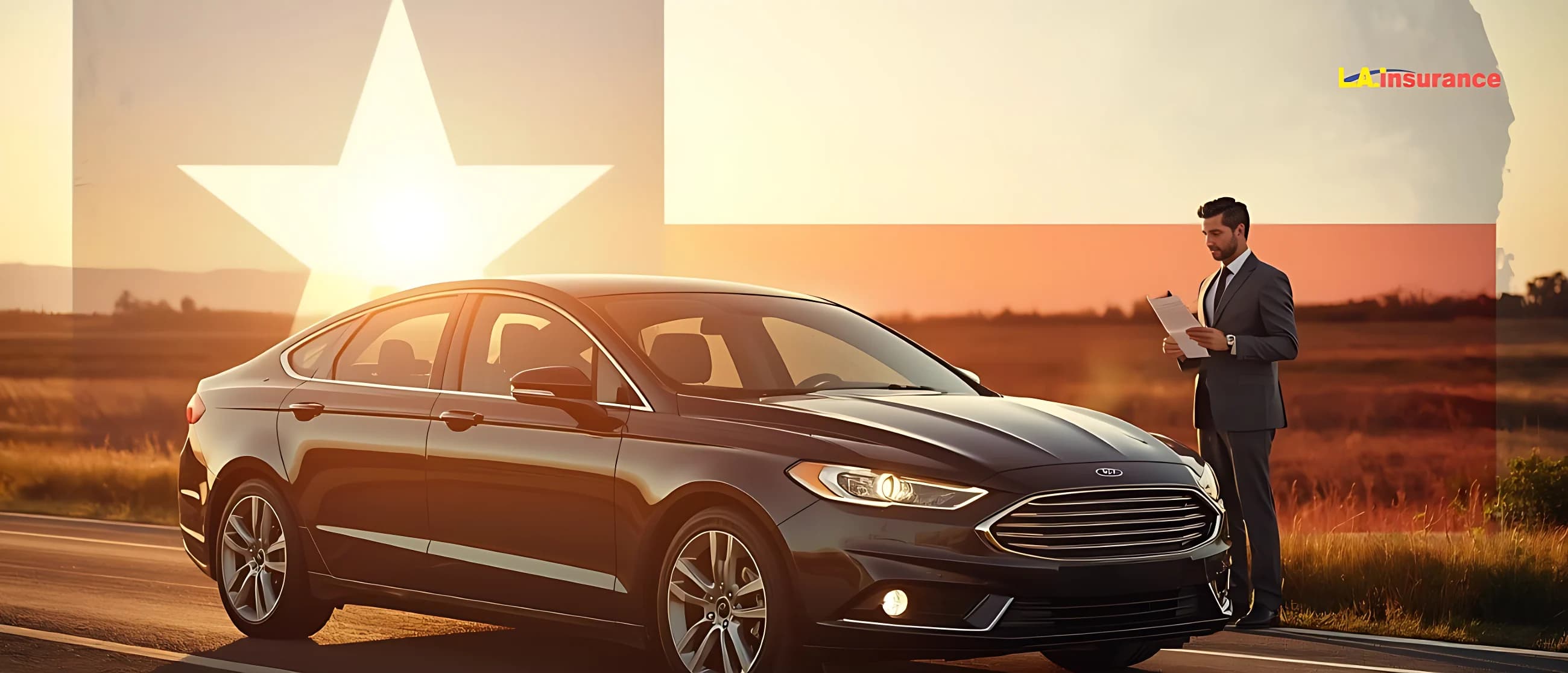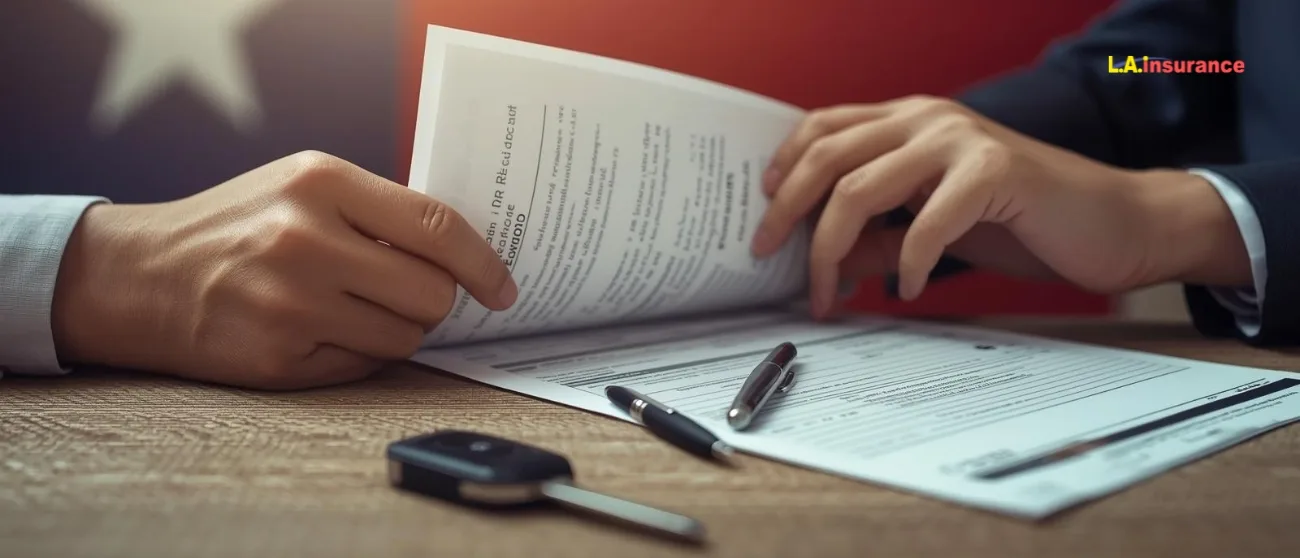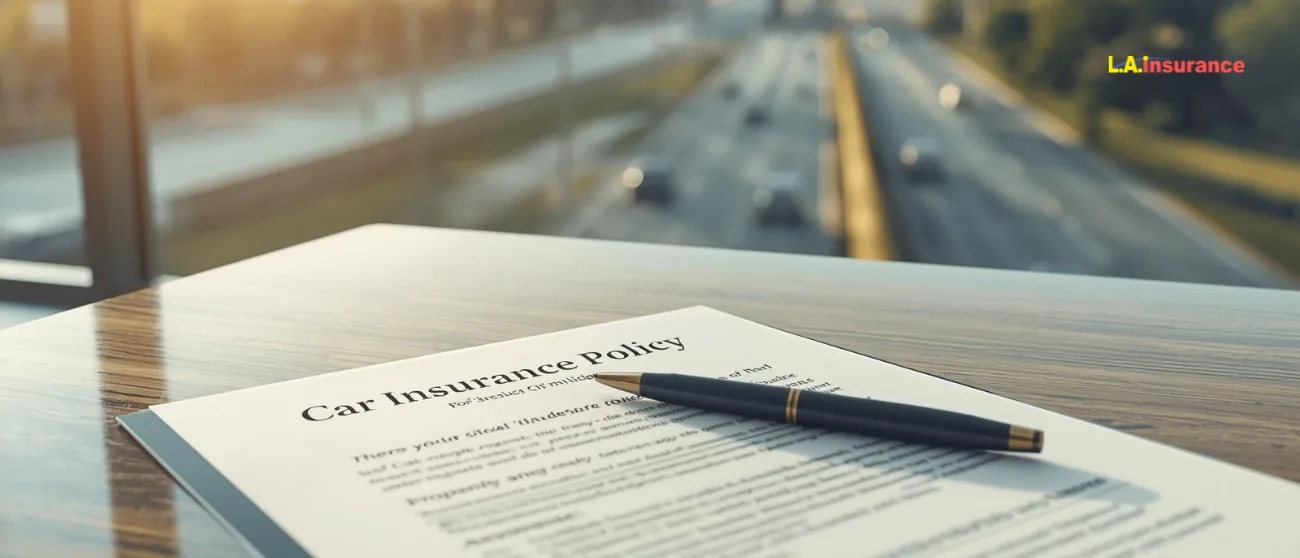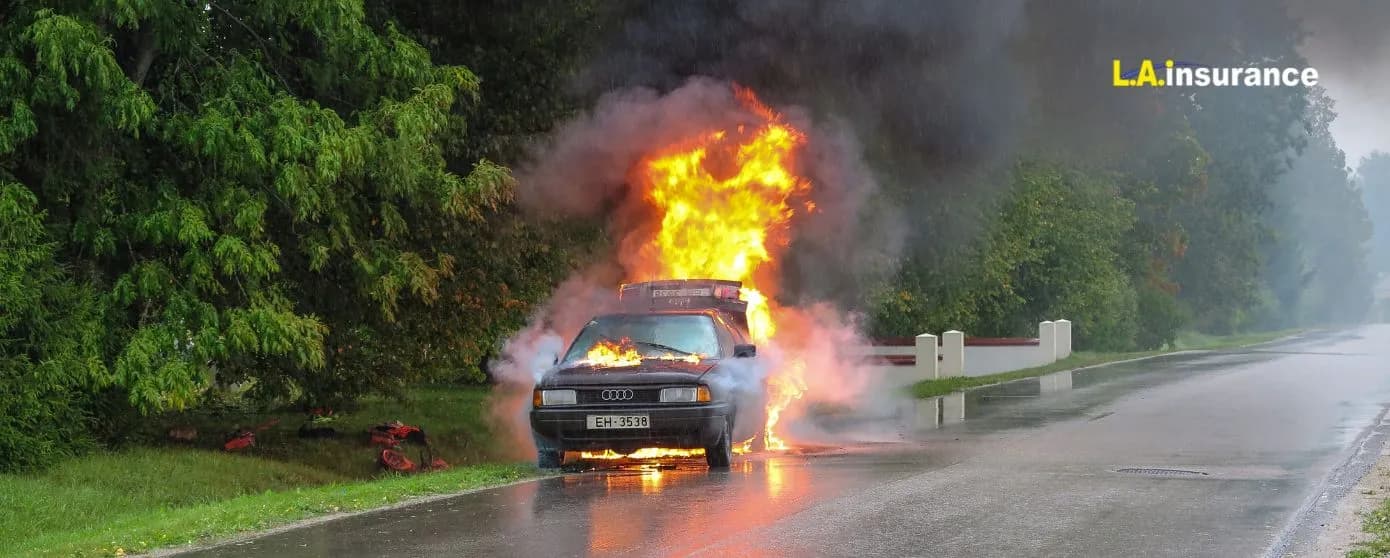
Publish Date: 04-12-2024
Auto Insurance
Last Updated: 24-02-2026
Does Car Insurance Cover Accidents on Private Property?
Accidents on private property happen more often than you think. A fender bender in a crowded parking lot. A scrape against a neighbor’s fence. Or worse, a slip and fall in your driveway. But does your car insurance cover accidents on private property? That depends. Factors like fault, policy specifics, and even state laws come into play.
You can avoid any unpleasant financial shocks if you understand car insurance coverage, what your policy covers, and to what extent. Also, reviewing your automobile insurance policy regularly can save you stress later. In this article, we'll discuss how auto insurance works for accidents that happen on private property.
What Is Private Property in the Context of Car Insurance?
Any land or structure owned by an individual or non-government entity is private property. Such a property is not open for public use. It is managed and controlled by the owner himself. Residential driveways, private parking lots, and gated roads are common examples of private property. Unlike public roads, the rules can vary based on the discretion of the owner.
Examples of Private Property
Private property comes in many forms. Let’s discuss it in detail:
- Residential Driveways: Driveways that lead to homes are classic examples. They connect private residences to public streets. However, accidents here can create unique challenges. For instance, determining fault may involve reviewing premise liability or checking for negligence on the part of the homeowner.
- Parking Lots and Garages: Parking areas owned by malls, businesses, or individuals are private too. These are often hotspots for minor car accidents. You can imagine backing out of a tight spot and hitting another car. In such a case, your auto insurance might step in depending on who’s at fault.
- Private Roads: Some neighborhoods and gated communities maintain their own roads. These are labeled as private roads. Accidents here can get complicated. Who is responsible? Is it the driver, the property owner, or both? The liability usually depends on state laws and the insurance policy terms.
It is important to understand these distinctions. Because, according to Statista, more than 4.8 million car accidents in the U.S. in one year resulted in property damage only. That’s why knowing whether your insurance covers damage to private property can prevent unexpected expenses. Car insurance coverage extends to many private areas, but not all situations are equal. Don't forget to look over your policy and see if there are any insurance gaps.
Does Car Insurance Cover Accidents on Private Property?
The answer is yes. Car insurance typically covers accidents on private property. However, the specifics depend largely on your insurance policy. Liability coverage, collision coverage, and comprehensive coverage may apply in different ways. Yet, factors like the determination of fault, the nature of the property, ownership, police reports, and state laws can altogether influence coverage.
Types of Insurance Policies That Cover Accidents on Private Property
Ordinarily, three types of car insurance coverage are included in your insurance policy that indemnifies accidents on private property.
- Liability Coverage: This coverage pays for damages or injuries you cause to others. For example, if you accidentally damage a neighbor’s garage door, your liability policy may cover the costs. It also applies to car accidents in places like private parking lots.
- Collision Coverage: This coverage repairs your car if it is damaged in an accident, no matter who is at fault. For instance, if you hit a tree in a private driveway, this policy can handle your vehicle repairs.
- Comprehensive Coverage: This policy covers non-collision accidents. Imagine a branch falls on your car while it is parked in a private lot. Here, comprehensive coverage comes to your rescue.
Please note that if you have full coverage auto insurance, you are likely to be entitled to coverage for accidents that occur on private property. So, get the most reliable insurance coverage from the most affordable insurance agency to ensure peace of mind in any unexpected event.
Factors to Consider When Determining Coverage
Coverage depends on multiple factors. Such as:
- The type of insurance policy you have
- The details of the accident
- Whether the property owner was negligent
- Whether poor road maintenance caused the crash
- State laws
Some states follow comparative negligence, while others apply contributory negligence rules.
Examples of When Car Insurance May or May Not Cover Accidents
- Covered Example: You accidentally back into a car in a shopping mall parking lot. Collision coverage pays for repairs to your car and liability insurance handles the other driver’s damages.
- Not Covered Example: You hit a pothole on a private road. If you don’t have collision coverage, you’ll likely pay out of pocket for repairs.
When Does Auto Insurance May Not Cover Private Property Accidents
Accidents on private properties are covered by car insurance. But it depends on your circumstances as well. Sometimes, your car insurance may reject your auto insurance claim. Here's when they may do so:
- Intentional Damage: Accidents caused on purpose are not covered. Insurance doesn’t pay for deliberate acts.
- Uninsured Drivers: If another driver without insurance hits your car on private property, your liability coverage won’t apply. Only your uninsured/underinsured coverage might help.
- Excluded Vehicles: Damage to vehicles not listed on your policy may not be covered. Rental cars or borrowed cars can be tricky.
- Commercial Use: Using your personal car for business (deliveries, rideshare) often voids standard coverage unless you have a commercial policy.
- Property Owner Negligence Limitations: Some accidents caused by poorly maintained private property may fall under the owner’s responsibility, leaving your insurance out of it if you weren’t at fault.
- Wear and Tear or Mechanical Failures: Collision coverage doesn’t fix old brakes, worn tires, or engine issues. Only accident damage counts.
- Policy Exclusions: Certain policies have explicit exclusions, like damage from racing, off-roading, or illegal activity.
- Unreported Accidents: Failing to report an accident promptly can result in denial of a claim. Insurance requires timely notice.
How Is Fault Determined in Private Property Accidents?
It can be difficult to figure out who is at fault on private property. Private roads don't always have clear traffic laws like public roads do. Things like negligence, shared responsibility, and certain conditions all play a part. To start the process, you need to know the law and gather evidence. This is how fault is assessed:
The Role of Comparative and Contributory Negligence
State laws shape fault determination. Most states follow comparative negligence which means the fault is shared based on each party’s contribution to the accident. For example, if you’re 30% at fault, you might still recover 70% of the damage.
However, some states use contributory negligence. Here, even a 1% fault can bar you from recovering compensation. This system is strict because drivers must prove they were entirely blameless.
Shared Responsibility Between Drivers and Property Owners
Fault isn’t always on the driver. Property owners may share liability. For example, a poorly maintained private parking lot with potholes could cause an accident. In such cases, the owner’s liability insurance might cover the damages.
On the other hand, drivers are responsible for safe operation. Speeding in a private parking lot or failing to yield can shift the blame to them. Both drivers and owners must act responsibly to prevent car accidents.
Learn more: Does car insurance follow the car or the driver?
Challenges in Establishing Fault on Private Property
Private property lacks uniform rules. Unlike public roads with clear signage, private areas can vary greatly. This makes determining fault difficult. For instance:
- Lack of Witnesses: Few people may see the incident.
- No Police Reports: Authorities often don’t respond to private property accidents.
- Confusing Boundaries: It may not be clear whether the property is public or private.
Moreover, insurers review evidence like photos, insurance claims, and witness statements. In some cases, disputes lead to legal actions. In short, fault determination on private property requires thorough evaluation.
Steps to Take If You’re Involved in an Accident on Private Property
It can be terrifying when accidents happen on private property. However, to save time and money, you need to act quickly and correctly. In this unexpected situation, you need to take the right steps to ensure your insurance claim is processed smoothly. Here’s what to do.
Assessing the Situation and Ensuring Safety
First, check if anyone is injured. If so, call for medical help immediately. Move vehicles to a safe spot if possible. Private parking lots and driveways can be busy areas. Prevent further accidents by turning on hazard lights or using warning signs.
Next, remain calm. Avoid admitting fault or placing blame. Instead, focus on documenting what happened. This ensures a fair process later.
Gathering Evidence and Documenting the Scene
Evidence is key for insurance claims. Take clear photos of the damage to vehicles and property. Capture the surrounding area too, including the skid marks or potholes.
Moreover, speak to witnesses. Get their contact details and record their statements if possible. Witness accounts can be valuable when determining fault.
If the accident occurred poorly maintained properly, note hazards like broken pavements or unclear signage. These details can support your case.
Contacting Your Insurance Provider
Report the accident to your insurer promptly. Share all relevant details, including photos, witness information, and property conditions. Be honest but avoid speculating on fault.
Your insurance company will assign an adjuster to review your claim. Provide them with any requested documents quickly. This keeps the process moving.
Filing a Claim and Following Up
After filing your claim, stay in touch with your insurer. Ask for updates and provide extra information as needed. For instance, if the property owner was involved, their liability insurance may also play a role.
Sometimes claims face delays or disputes. If this happens, you can contact our auto insurance agent. Find an agent here! Also, you can consider consulting an auto insurance attorney if things get out of hand or you want to ensure fair compensation.
Common Scenarios of Accidents on Private Property
Accidents on private property happen in many ways. Each scenario can take you to unique trials. Some involve parking lots, while others stem from poor maintenance or natural hazards. That's why you need to understand these cases when filing an insurance claim after an accident on private property. Let’s explore the common ones.
Parking Lot Collisions
Parking lots are busy and unpredictable. Cars move in and out of space. Pedestrians cross without warning. These environments make auto accidents more likely.
For example: two cars backing up at the same time often collide. Similarly, one vehicle may rear-end another in a crowded lot. In these cases, liability coverage typically handles damage to the other car. Meanwhile, your collision coverage can cover repairs to your own vehicle.
Damage from Poorly Maintained Roads or Driveways
Poor maintenance is another leading cause. Private driveways or roads may have potholes, cracks, or uneven surfaces. Driving over these hazards can damage tires, suspension systems, or even the undercarriage.
For instance, hitting a dip pothole might leave you with costly repairs. If the accident is due to the negligence of the owner in maintaining the property, their liability insurance could cover the damage. However, without collision coverage, you may need to pay for repairs yourself.
Falling Objects
Objects falling onto vehicles are common in residential or private parking lots. Tree branches, for example, can snap during storms. Or construction debris might fall from nearby buildings.
These incidents fall under comprehensive coverage which protects against non-collision events. For instance, if a branch smashes your windshield, your auto insurance can help. However, the property owner might also share responsibility, especially if negligence is proven.
Environmental Hazards
Nature often plays a role in accidents on private property. Ice-covered driveways or flooded parking areas are prime examples. Drivers lose control which leads to collisions or property damage.
For instance, skidding on black ice could send a car into a fence. Here, collision coverage may pay for your vehicle repairs. Meanwhile. The fence owner might file a claim through their home insurance policy.
In short, accidents on private property come in many forms. Once you recognize these scenarios, you can prepare better. It also ensures how car insurance policies apply in each situation.
Tips for Ensuring Comprehensive Car Insurance Coverage
Having comprehensive car insurance coverage brings peace of mind. It protects against unexpected costs from car accidents or property damage. However, policies vary widely. Staying informed and proactive is important. Here’s how you can ensure the best protection. Review and Update Your Policy Regularly
Your needs change over time. So do insurance policies. Review your policy annually. Check if your liability coverage or collision coverage aligns with your current situation.
For instance, if you’ve moved to a home with a long private driveway, you may need to adjust your coverage. Likewise, if you’ve upgraded your vehicle, you may want to consider higher coverage limits. Regular updates prevent unpleasant surprises during claims.
Consider Additional Coverage Option
Sometimes basic coverage isn’t enough. Consider additional policies to fill gaps. For example, an umbrella policy can provide extra protection beyond your standard limits. This is helpful in severe accidents where costs exceed your coverage.
Besides, you can increase your liability limit to get further coverage. It ensures you’re protected if you’re at fault in a major accident. Finally, add comprehensive coverage if you want protection from non-collision events like theft, natural disasters, or vandalism.
Learn the Laws that Apply to Your State
State laws highly influence car insurance coverage. Some states require minimum liability limits, while others enforce strict rules for uninsured motorist coverage.
For instance, states using comparative negligence allow fault to be shared among parties. In contrast, states with contributory negligence can deny compensation if you’re even slightly at fault.
Here are a few examples from different states:
California
In California, if an accident occurs on private property, the property owner may be held liable if the accident was due to unsafe conditions on the property, such as poor lighting or uneven surfaces. The injured party can file a claim against the property owner's insurance or pursue a personal injury lawsuit.
Texas
In Texas, the rules are similar. If an accident happens on private property, the property owner can be held liable if the accident was caused by negligence on their part, such as failing to maintain safe conditions1. The injured party can file a claim with the property owner's insurance or seek legal action.
New York
In New York, accidents on private property are also subject to liability laws. The property owner can be held responsible if the accident was due to their negligence, such as not addressing known hazards. The injured party can file a claim with the property owner's insurance or pursue a personal injury protection lawsuit.
Michigan
Similarly, in Michigan, if an accident occurs on private property, the property owner can be held liable if the accident was due to unsafe conditions on the property. The injured party can file a claim with the property owner's insurance or pursue a personal injury lawsuit. Also, if the accident results in death, injury, or property damage exceeding $1,000, it must be reported to the police, and a UD-10 Traffic Crash Report must be filed.
Does Auto Insurance Cover Accidents on Private Property: The Bottom Line
To sum up, auto insurance does cover accidents on private property. But it depends on your policy and the situation. Liability coverage handles damage to others while collision and comprehensive auto insurance fixes your own car. Yet, factors like who is at fault and the state laws matter. That’s why you should always check your insurance policy to stay prepared and get your auto insurance claim quickly.
You can also read the following articles that are related:
- Will Insurance Pay for Rental Car During Repairs?
- Does Auto Insurance Cover Cracked Windshield?
- Does Liability Insurance Cover Theft?
Frequently Asked Questions (FAQs)
Does Car Insurance Cover Property Damage?
Yes, car insurance covers property damage through liability coverage if you damage someone else’s property. If your property is damaged, collision or comprehensive coverage may apply depending on the cause.
What Should I Do If I'm Involved in A Hit-and-run Accident on Private Property?
Immediately document the scene, take photos, and gather witness information. Report the incident to the police and your insurance company. If you have uninsured motorist coverage, it may cover damages.
How Are Accidents on Private Property Typically Handled By Insurance Companies?
Insurers evaluate fault based on evidence like photos, witness statements, and property conditions. They may involve liability or collision coverage depending on the circumstances. Fault determination is often more complex on private property.
What Are the Consequences of Having an Accident on Private Property Without Insurance?
Without insurance, you may be held personally liable for all damages and legal costs. Additionally, driving without insurance can result in fines, license suspension, and lawsuits.
How Should I Report an Accident That Occurred in A Private Parking Lot?
Notify your insurer immediately. Provide details like photos, witness information, and any property owner reports. If injuries or significant damage occurred, file a police report as well.
What Steps Should I Take If I Get into a Car Accident on School Property?
Ensure safety, then document the damage. Contact school authorities and exchange information with the other party. Report the accident to your insurer and provide any school reports or evidence collected.
Does Car Insurance Cover Dog Damage?
Yes, if your dog damages someone else’s property, liability coverage may apply. For damage to your car caused by a dog, comprehensive coverage typically covers it.
How Does Insurance Work When It's Not Your Fault?
The at-fault party’s insurance should pay for damages. If they’re uninsured or underinsured, your uninsured/underinsured motorist coverage can cover the costs.
What Is Property Damage Coverage in Insurance?
Property damage coverage pays for repairs or replacement of property you damage in an accident. It includes vehicles, fences, and buildings but does not cover your own car.
Will Insurance Pay If I Hit a Wall?
Yes, if you have collision coverage, it can pay for repairs to your car if you hit a wall. Liability coverage handles repairs to the wall if it’s not your property.
What Does Full Coverage Car Insurance Cover?
Full coverage car insurance combines liability, collision, and comprehensive insurance. It covers property damage, vehicle repairs, and non-collision events like theft, vandalism, or natural disasters.
Does Insurance Cover Hitting an Object?
Yes, collision insurance covers damages if you hit an object like a tree or fence. Liability coverage applies if the object belongs to someone else.
Editorial Disclaimer
The information provided on this blog is for general informational purposes only and does not constitute professional insurance, legal, or financial advice. Coverage and rates are subject to individual eligibility, underwriting guidelines, and state availability. For specific questions regarding your policy or to get an accurate quote, please contact a licensed L.A. Insurance agent directly. We're an independent agency and not a direct insurance carrier. For more information on how we operate and handle your data, please see our Terms and Conditions and Privacy Policy.
Tag :
Auto insurance
best auto insurance
cheap car insurance
